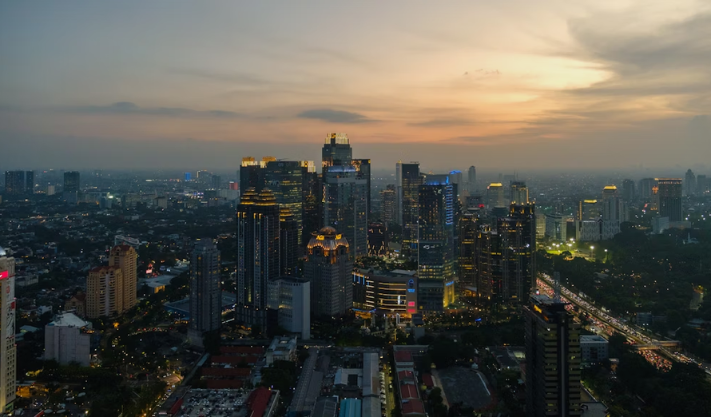
Opportunities for Indonesia to Boost Its Startup Ecosystem
Indonesia is not very well-known to most Americans. Even though it is the world’s fourth most populous country and the 10th largest economy, trade between the US and Indonesia was only about $42 billion in 2024. Most of this trade is in natural resources like oil and timber. By comparison, the US trades about $150 billion with India and is expected to reach $1 trillion with China and Mexico in the next few years, depending on tariffs.
With more than 300 million people, 120 islands, many religions, and languages, Indonesia has huge creative potential. This potential is slowly showing up in startups and innovation. The country is a hub for research in areas like the blue economy (ocean preservation, fishing, and sea level rise), agriculture, palm oil alternatives, and local content. Indonesia also helped create the ecotourism sector, which changed how people travel and how tourism impacts the environment.
However, Indonesia’s tech startup scene is still small for a country of its size. In 2024, there were fewer than 1,000 tech startups in Indonesia. By comparison, Bangalore in India had 250 funded health AI startups in the same year. Some Indonesian startups, like Gojek, J&T Express, Xendit, and Traveloka, became “unicorns” (worth over $1 billion), but they mainly grew by serving large local and Southeast Asian markets, not by creating new technology.
Why does this matter now? Indonesia has a free trade agreement with the US, and tariffs are only 19%, compared to 50% with India and other startup hubs. The country has made it easier to raise capital and start businesses, but it still needs more investment in accelerators, technology transfer programs, intellectual property protection, and investment regulations. As an upper-middle-income country, Indonesia has the resources to support a growing startup ecosystem and easy access to large nearby markets like the Philippines, Australia, Southeast Asia, and China.
The Indonesian economy is growing steadily, creating opportunities for local entrepreneurs and innovators. The government has introduced positive economic policies through early 2026 that have encouraged foreign investment without raising taxes. In the second quarter of 2025, the economy grew by over 5% and could reach the government’s target of 6–8% growth in 2026. The venture capital market is still young, but more investors are willing to fund later-stage startups, especially in fintech, logistics, agritech, clean energy, health tech, and edtech. Challenges remain, including limited access to capital outside major cities, unclear tech and fintech regulations, and a shortage of deep tech skills.
Dr. Monica Romelina Sijabat, a professor at the Faculty of Economics and Business at the University of Indonesia, Jakarta, an attorney, and founder of MRS Business Professional (with offices in the U.S., Europe, and Southeast Asia), explains that she has over ten years of experience in taxation, international law, business consulting, and research, making her a recognized expert in her field.
Dr. Sijabat adds, “A 19% U.S. tariff on Indonesian exports would increase export prices, reduce demand for Indonesian electronics and tech products, and squeeze profits for companies selling to the U.S. This could slow revenue and investment in emerging-tech manufacturing. In the short term, it may affect suppliers and businesses moving into Indonesia and other ASEAN countries, which could help develop local supply chains. The government would need to respond with subsidies, export diversification, and new incentives for R&D and skills development in emerging tech.”
With the right support—like research and development, startup accelerators, and early-stage funding—Indonesian startups can grow, particularly in fintech and e-commerce, both locally and in nearby markets. There are also strong investments in sustainable industries, such as the blue economy, agri-tech, sustainable farming, and rainforest preservation. With the U.S. focused elsewhere, now is an ideal time to explore opportunities in Indonesia.
Also Read:
Top US Fashion Brands to Watch in 2025
Sir Martin Sorrell: Global Ad Industry Visionary Leader
US Economic Forecast 2025: What Businesses Need to Know